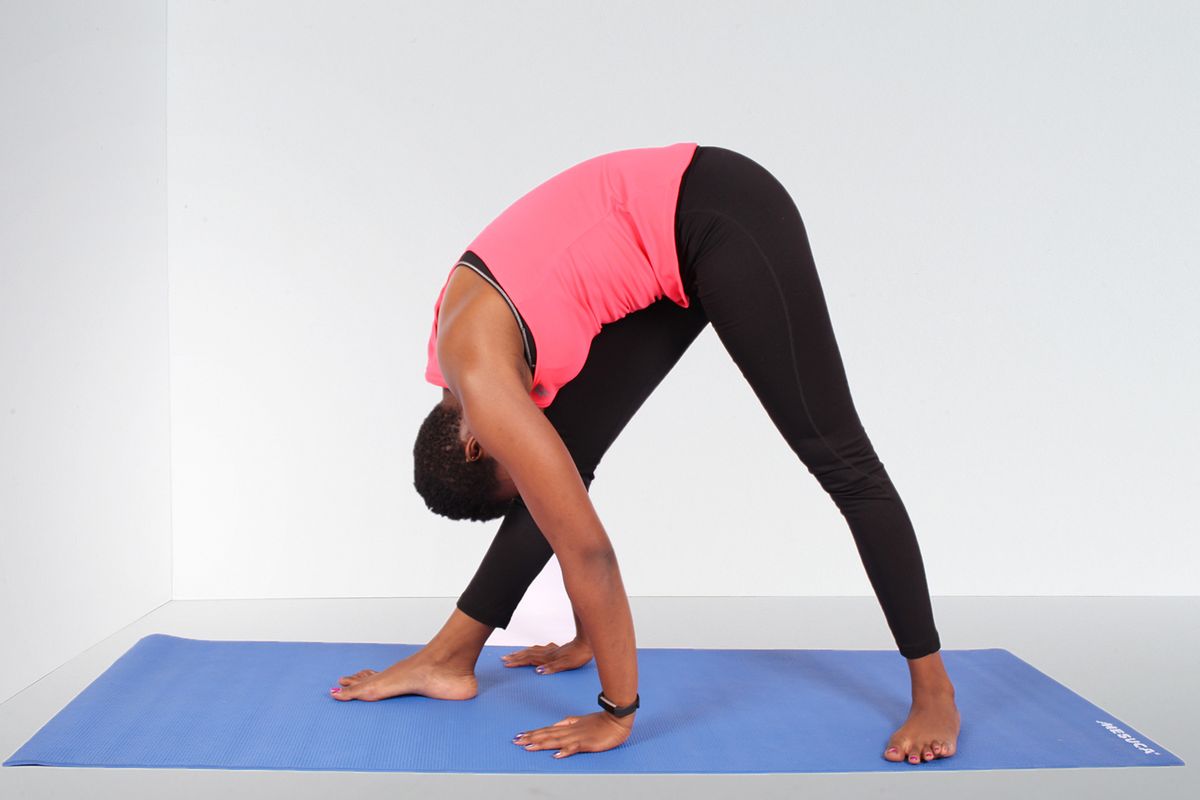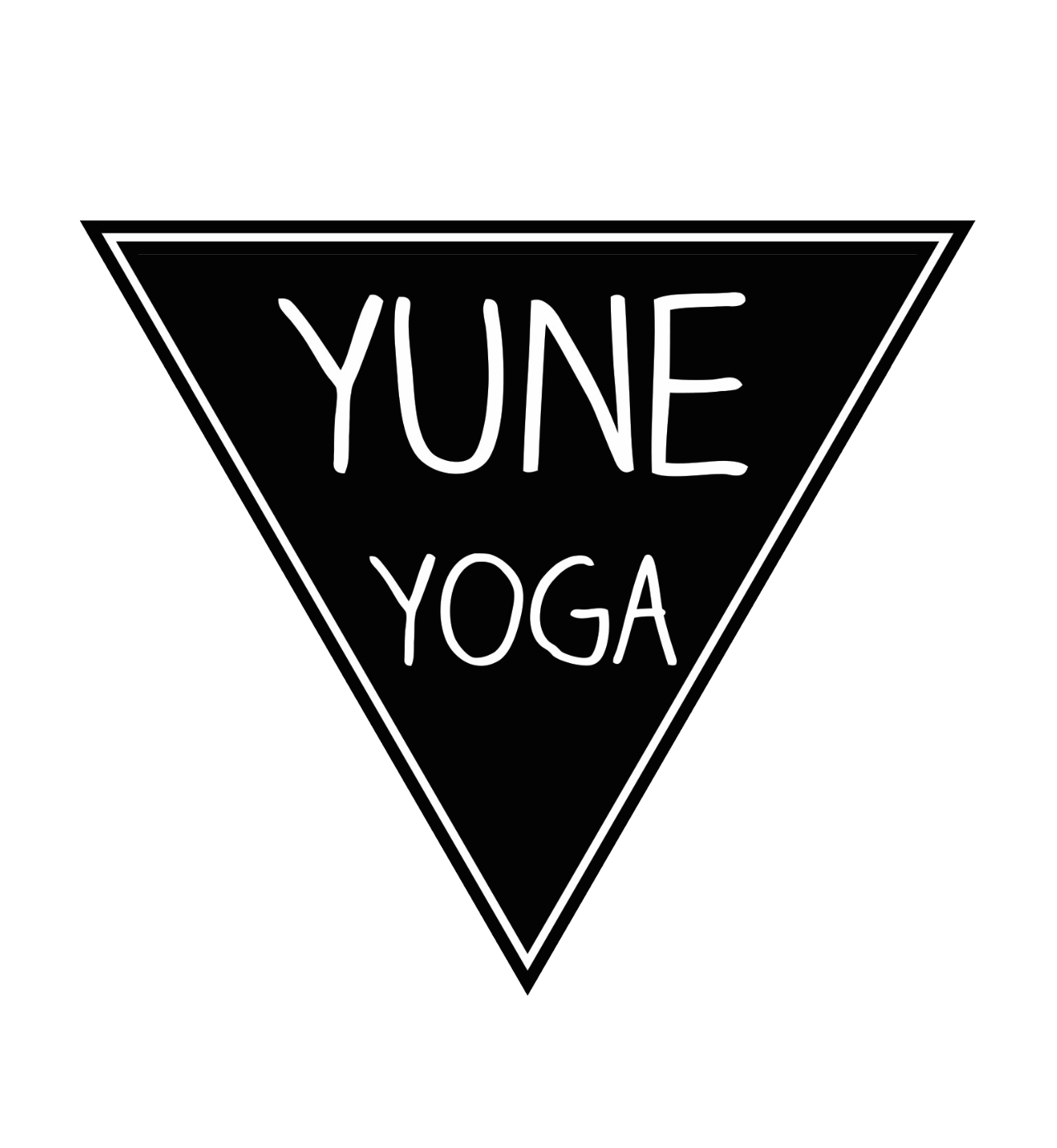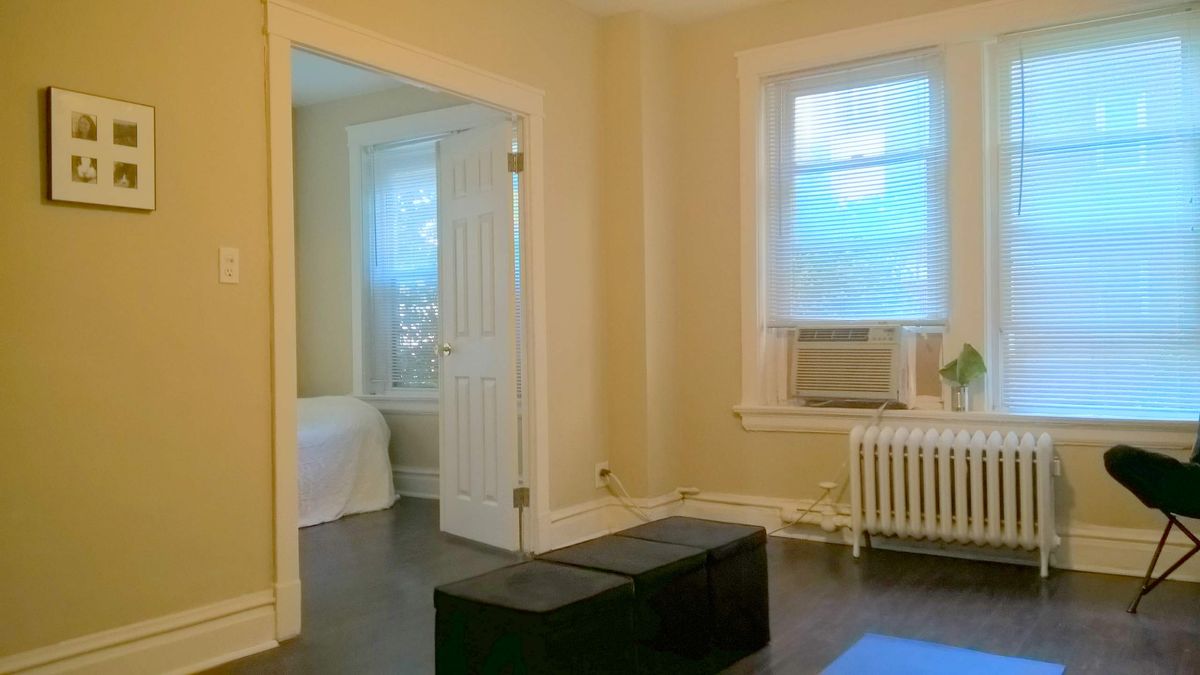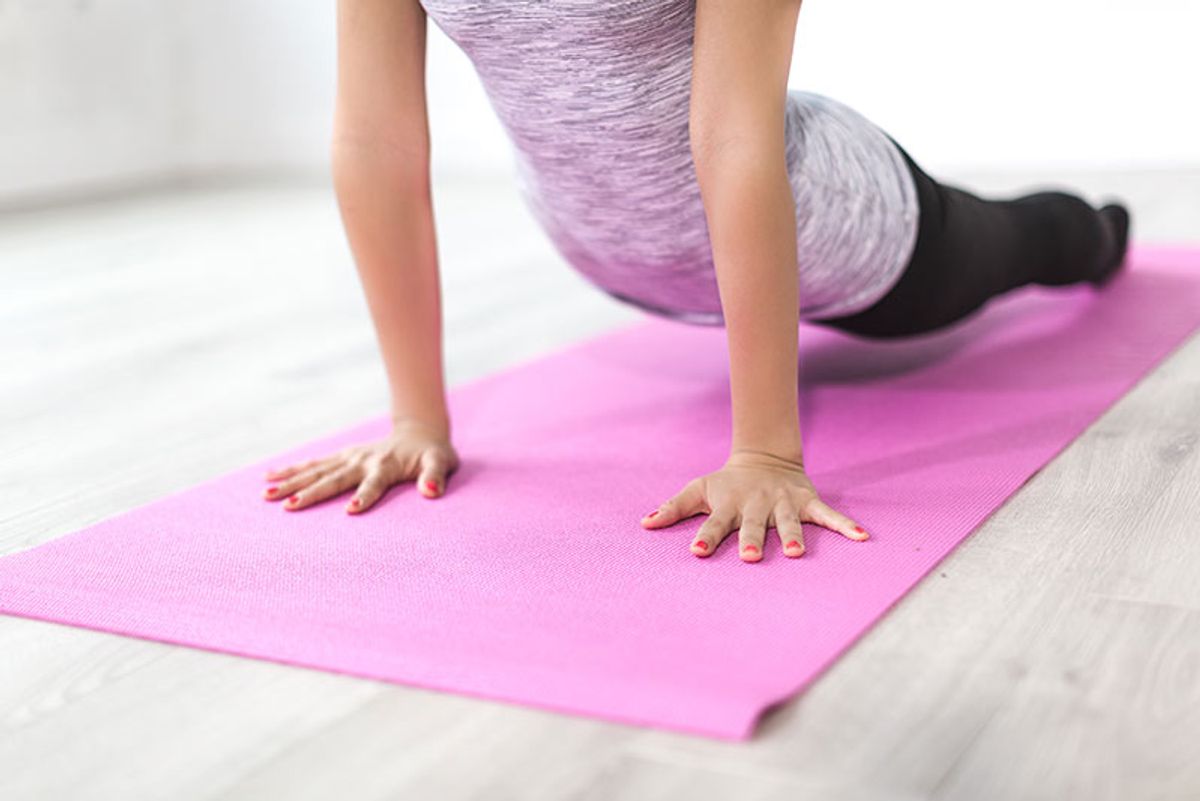
The Ultimate Guide to Choosing the Perfect Extra Thick Yoga Mat
Choosing the right yoga mat can significantly enhance your yoga practice, particularly when it comes to extra thick yoga mats. These mats offer superior comfort, protection, and stability, making them ideal for those who need additional cushioning or are dealing with joint issues. In this guide, we'll explore the various aspects of selecting and using an extra thick yoga mat to help you make an informed decision.
Key Takeaways
- Understand the unique benefits extra thick yoga mats offer, such as enhanced comfort and joint protection.
- Consider key features like material, thickness, and texture to find a mat that suits your personal needs.
- Explore different types of extra thick yoga mats, including memory foam and natural rubber, to see which best fits your practice.
- Learn proper maintenance techniques to extend the life of your yoga mat and keep it in good condition.
- Incorporate your extra thick yoga mat effectively into your daily routine for a more comfortable and rewarding yoga experience.
Understanding the Benefits of Extra Thick Yoga Mats
Enhanced Comfort and Support
Extra thick yoga mats provide a significant level of cushioning, which enhances comfort during your practice. This is especially beneficial for longer sessions where fatigue might set in with thinner mats.
- Increased cushioning reduces pressure on the body.
- Helps in maintaining poses for longer periods without discomfort.
- Ideal for restorative yoga, where comfort is paramount.
Protection for Joints and Knees
The additional thickness of these mats is crucial for protecting joints and knees from hard surfaces. This makes them an excellent choice for practitioners with joint issues or those recovering from injuries.
- Absorbs impact effectively, reducing stress on joints.
- Encourages a safer practice by minimizing the risk of injury.
Improved Stability for Balance Poses
While thicker mats might seem counterintuitive for balance poses, the right density can actually provide improved stability. This is particularly important for beginners or those practicing challenging balance poses.
- A dense, extra thick mat can offer a stable foundation.
- Enhances confidence in performing balance-intensive asanas.
Choosing the right thickness and density is crucial to reap these benefits without compromising on the effectiveness of your yoga practice.
Key Features to Consider When Buying an Extra Thick Yoga Mat
Material and Durability
When selecting an extra thick yoga mat, the choice of material significantly affects its longevity and performance. Common materials include PVC, TPE, natural rubber, and memory foam. Each has distinct characteristics:
| Material | Durability | Eco-Friendliness |
|---|---|---|
| PVC | High | Low |
| TPE | Moderate | Moderate |
| Rubber | High | High |
| Foam | Low | Low |
Thickness and Density
The right thickness and density can greatly enhance your yoga experience. Typically, extra thick mats range from 1/4 inch to 1 inch. Higher density mats offer better support and durability but may be heavier. Consider your personal comfort and the types of yoga you practice.
- For Yin or restorative yoga: Opt for thicker mats for cushioning.
- For dynamic styles: Choose a denser mat to maintain balance.
Texture and Grip
The surface texture influences the mat's grip, impacting your stability during poses. Look for mats with a non-slip texture to ensure safety and performance. This feature is crucial for maintaining poses and alignment, especially in vigorous or sweaty sessions.
Tip: Regularly test the grip of your mat by performing a few poses on it before starting a full session, to ensure it meets your needs.
Comparing Different Types of Extra Thick Yoga Mats
Memory Foam Mats
Memory foam mats are renowned for their exceptional comfort and ability to conform to the body's shape, providing excellent support during various poses. These mats are particularly beneficial for yogis with sensitive joints or those who prefer a softer surface.
- Ideal for therapeutic practices
- Best for indoor use due to their weight and texture
- Higher price range but worth the investment for comfort
Natural Rubber Mats
Natural rubber mats offer a perfect balance of firmness and elasticity, making them suitable for dynamic and high-intensity yoga styles. Their eco-friendly nature and durability make them a popular choice among environmentally conscious practitioners.
- Excellent grip and slip resistance
- Biodegradable and often made from sustainable sources
- Variability in firmness depending on the brand
PVC and TPE Mats
PVC (Polyvinyl Chloride) and TPE (Thermoplastic Elastomer) mats are versatile and widely available, making them a go-to option for many beginners and seasoned yogis alike. They are easy to clean and maintain, offering a practical solution for those who practice frequently.
- Range of thicknesses and densities available
- Cost-effective and durable
- Suitable for a variety of yoga styles
Choosing the perfect thick yoga mat is essential for comfort and support during practice. Consider material, thickness, and type of yoga for optimal benefits and stability.
How to Maintain and Clean Your Extra Thick Yoga Mat
Regular Cleaning Techniques
To ensure the longevity and hygiene of your extra thick yoga mat, regular cleaning is essential. Create a cleaning schedule that aligns with your practice frequency. Use a gentle, non-abrasive cleaner and a soft cloth to wipe down the mat after each use. For a deeper clean, mix mild soap with water and gently scrub the mat, then rinse thoroughly.
Dealing with Odors and Stains
Extra thick yoga mats can retain odors and stains if not properly maintained. To combat this, use a solution of vinegar and water in a 1:4 ratio as an effective natural cleaner. For tougher stains, baking soda can be applied before the vinegar solution. Always test a small area first to ensure the mat's material is not damaged.
Proper Storage Solutions
Storing your extra thick yoga mat correctly will help maintain its shape and prevent damage. Avoid folding the mat, as this can create creases. Instead, roll the mat loosely and store it in a cool, dry place. If space allows, hanging the mat from a rack is ideal to keep it smooth and ready for your next session.
The Role of Mat Thickness in Yoga Practice
Impact on Various Yoga Styles
Different yoga styles require different levels of cushioning and support from a yoga mat. For instance, Yin Yoga and restorative classes benefit greatly from thicker mats that provide enhanced comfort during prolonged floor poses. Conversely, styles like Ashtanga or Vinyasa need thinner mats to ensure proper balance and stability.
Adjustments for Advanced Poses
Advanced yoga poses often demand more from a mat in terms of both support and surface stability. A thicker mat can help in reducing pressure on the joints and enable smoother transitions between poses. However, too much thickness might impede the tactile connection with the floor, which is crucial for many advanced techniques.
Considerations for Beginners
Beginners might find that a thicker mat provides a more forgiving surface as they learn new poses. This can help in reducing the fear of falls and injuries, encouraging a more confident practice. It's important for beginners to choose a mat that balances comfort with enough firmness to maintain stability during basic standing and seated poses.
- Yin Yoga: Enhanced comfort
- Ashtanga/Vinyasa: Firm grounding
- Beginners: Balance of comfort and stability
Top Brands and Models of Extra Thick Yoga Mats
Review of Popular Choices
When selecting an extra thick yoga mat, the market offers a variety of top brands known for their quality and durability. Brand A is renowned for its superior cushioning and longevity, making it a favorite among seasoned yogis. Brand B's mats are praised for their eco-friendly materials and sustainable production methods. Lastly, Brand C stands out for its innovative designs that cater to all yoga styles.
| Brand | Thickness | Material | Price |
|---|---|---|---|
| Brand A | 8mm | Memory Foam | $80 |
| Brand B | 7mm | Natural Rubber | $70 |
| Brand C | 8.5mm | PVC | $65 |
What Professionals Recommend
Professionals often recommend extra thick mats for those who need additional joint support or are engaged in intensive practice sessions. The consensus is that a mat with at least 6mm of thickness provides a good balance between comfort and stability. Brand A and Brand D are frequently suggested by yoga instructors for their performance and quality.
Budget-Friendly Options
For yogis on a budget, there are several affordable yet high-quality options available. Brand E offers a reliable 6mm thick mat at a competitive price, while Brand F provides a decent range of colors and textures for a personalized yoga experience. These options ensure that cost does not become a barrier to enjoying the benefits of yoga with an appropriate mat.
Remember, the right mat can significantly enhance your yoga practice by providing the necessary support and comfort.
Incorporating Extra Thick Yoga Mats into Your Daily Routine
Setting Up Your Practice Space
To effectively incorporate an extra thick yoga mat into your daily routine, start by designating a specific area in your home that is quiet, spacious, and free from distractions. Ensure the space is large enough to accommodate your mat and allows for freedom of movement. Consider the lighting and ventilation of the area to enhance your overall yoga experience.
Combining with Other Yoga Accessories
When using an extra thick yoga mat, pairing it with the right accessories can enhance your practice. Consider items such as yoga blocks, straps, and bolsters. Here’s a simple list of accessories that complement an extra thick mat:
- Yoga blocks for deeper stretches
- Straps to aid in reaching and maintaining poses
- Bolsters for added support during restorative poses
Tips for Consistent Practice
To make the most out of your extra thick yoga mat, consistency is key. Set a regular schedule for your yoga sessions and stick to it. Use reminders or alarms to keep yourself accountable. Additionally, keep your yoga space inviting and ready for use, which can motivate you to maintain a regular practice. Blockquote: > Embrace the comfort and support of your extra thick yoga mat to deepen your practice and enhance your well-being.
Incorporating extra thick yoga mats into your daily routine can transform your practice, providing enhanced comfort and support for all your poses. Whether you're a beginner or an experienced yogi, our selection of premium mats at Yune Yoga is designed to meet your needs. Visit our website to explore our diverse range of yoga mats and find the perfect one to enrich your daily yoga sessions. Make the most of your practice with the right mat—shop now!
Conclusion
Choosing the right extra thick yoga mat can significantly enhance your yoga practice by providing the necessary support and comfort. Throughout this guide, we've explored various factors to consider, such as material, thickness, texture, and size, to help you find a mat that suits your specific needs. Remember, the perfect yoga mat is one that aligns with your personal practice style and preferences. Take the time to assess your options and even test a few if possible. With the right extra thick yoga mat, your yoga sessions can become more enjoyable and effective, allowing you to focus on your poses and mindfulness without discomfort.
Frequently Asked Questions
Why should I choose an extra thick yoga mat over a standard one?
Extra thick yoga mats provide better cushioning and support, making them ideal for protecting joints and improving stability during balance poses.
What are the best materials for extra thick yoga mats?
Popular materials include memory foam, natural rubber, and PVC. Each offers different levels of durability, comfort, and eco-friendliness.
How thick should an extra thick yoga mat be?
Extra thick yoga mats typically range from 1/4 inch to 1 inch in thickness. Your choice should depend on your personal comfort and the type of yoga you practice.
How do I clean and maintain my extra thick yoga mat?
Regular cleaning with mild soap and water is recommended. Avoid harsh chemicals and consider using a yoga mat cleaner for odors and stains. Store your mat rolled up in a cool, dry place.
Can an extra thick yoga mat improve my yoga practice?
Yes, the additional cushioning can help reduce fatigue and increase comfort, allowing you to focus more on your poses and less on discomfort.
What are some recommended brands of extra thick yoga mats?
Some top brands include Manduka, Gaiam, and Liforme. These brands are known for their quality, durability, and range of options suitable for all levels.


